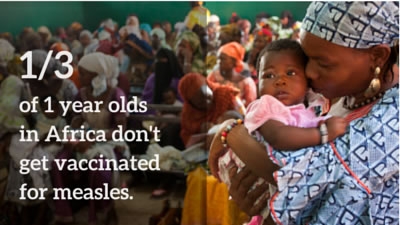In Africa, 1/3 of one-year-old children are not vaccinated for measles, 25% of primary school-aged children are out of school, and 25% of children don’t have safe drinking water. These statistics are more than just indicators of the general well-being of children. Early access to basic goods and services, which is often influenced by a child’s social and economic circumstances, can shape opportunities and quality of life in adulthood.
Access to primary education, basic health services, safe drinking water, electricity and adequate nutrition at a young age are particularly critical for allowing a child to attain his or her full potential.
This report explores changing opportunities for children in Africa and makes policy recommendations for building human capital and improving opportunities through equal access to education and health care.
The report finds that some countries have made progress in improving access to education and nutrition.
For example Ethiopia, Mali, and Madagascar have improved access to all education opportunities. Meanwhile, Ghana, Mali and Zambia rate high in school attendance of children ages 6-11. Tanzania and Namibia rate the highest for school test scores and for completion of primary school compared to other countries. Mozambique has significantly improved access to immunization and Nigeria has the highest rates for access to nutrition.
